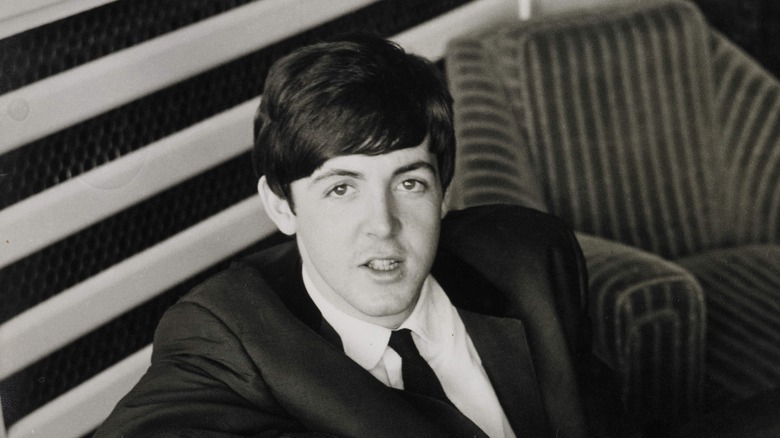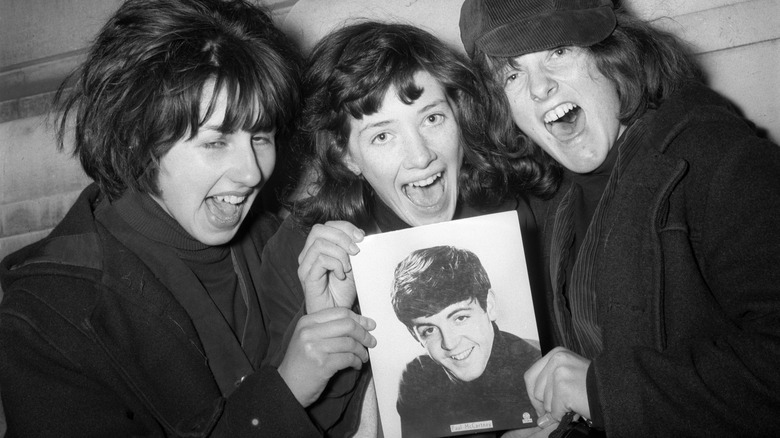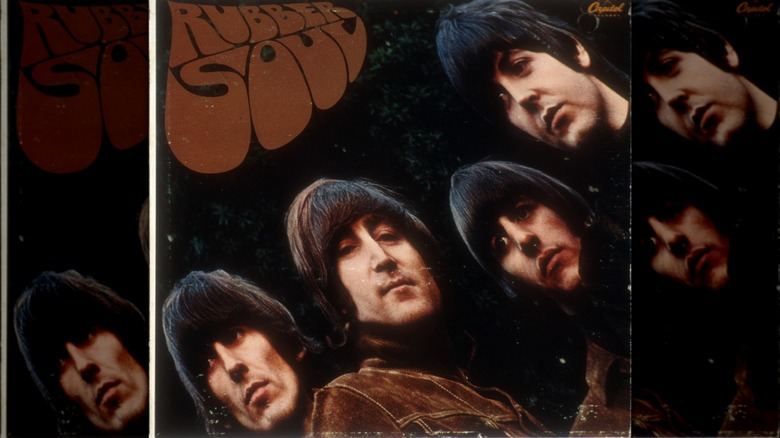The Nickname Paul McCartney Absolutely Hated
The Beatles came from humble beginnings to become both the biggest-selling and arguably the most influential rock band of all time. The four "lads who shook the world" — John Lennon, Paul McCartney, George Harrison, and Ringo Starr — soon conquered America, where their arrival and subsequent coast-to-coast broadcast performances on "The Ed Sullivan Show" kickstarted what came to be known in the mid-1960s as "Beatlemania."
Some might surmise that being one-quarter of the biggest rock band in the world would be stressful. For every glitzy hotel room or Grammy Award, there would be a security-managed dash to a car or an arduous tour itinerary. However, writing in his book, "1964: The Eye of the Storm," McCartney recalls that the experience was just what he had been craving. "You might think that all this was terrible, that it was painful, and that we felt like animals in a cage ... I can only speak for myself, but I did not feel that way. This was something we had always wanted, so when it actually happened, when the mounted policemen held back the crowds outside the Plaza ... I felt like we were the stars at the center of a very exciting film" (via CNN).
Nevertheless, the widespread adoration that The Beatles received sometimes stuck in the craw of individual band members. For McCartney, whose boyish face stood out in the band, it was the fact he had by then become known as "the cute Beatle," a nickname that has stuck around but which he claims he has always detested.
The cute Beatle
The nickname has annoyed Paul McCartney for years. Speaking to The Daily News in 1989, the songwriter said: "I'm comfortable with people still seeing me as 'The Beatle,' ... It's like, once Greta Garbo, always Greta Garbo. You want to be alone, you're still Greta Garbo. Once Brigitte Bardot, always Brigitte Bardot, even when you're saving baby seals. But I'm not comfortable with being 'The Cute Beatle.' I've never really thought I was 'cute,' though I guess some people think so. Maybe there were a few moments of cute, mostly in the early days. As you get older, the harder edges come out."
Indeed, despite his later achievements as a solo artist and with his band Wings in the 1970s, McCartney remains best known for the work he did with the Fab Four and has made steps to honor the band's legacy accordingly, through his spearheading the "Anthology" project in the 1990s and, more recently, cooperating with the blockbuster Peter Jackson documentary "Get Back." But despite McCartney's contention that his reputation for cuteness was ill-deserved as he reached maturity, he has never quite shaken the nickname. As late as 2016 McCartney was described using the adjective in a review of a new biography of his life published by The Columbia Dispatch, as well as articles marking his 80th birthday in 2022.
A grown-up direction
"I hated that," McCartney told "The Howard Stern Show" in 2020 in relation to how each of the Beatles had been labeled by the press (via Ultimate Classic Rock). Noting that George was the "quiet" Beatle, and John the "witty" Beatle, he added: "That's what happens — just, 'He's the cute one.' I'd go, 'No, I'm not! Don't call me that. I hate that!' But once it's said, it kind of sticks."
Though Paul McCartney could do little to change the cute boyish looks that brought him millions of adoring fans in The Beatles' early days, he and his bandmates could certainly signal their growing maturity through their music, particularly from 1965 onward. Indeed, 1965 was a pivotal year for The Beatles in terms of their commercial success and their artistry, and their turning toward more oblique and hard-edged songwriting. In "The Beatles Anthology," McCartney recalls playing Bob Dylan some tracks from the band's seminal 1967 album "Sgt. Pepper's Lonely Hearts Club Band," to which Dylan responded: "I get it — you don't want to be cute anymore." However, according to McCartney, the band felt they had turned a corner toward maturity two years earlier, with the release of "Rubber Soul." "We'd had our cute period and now was time to expand," McCartney said.


